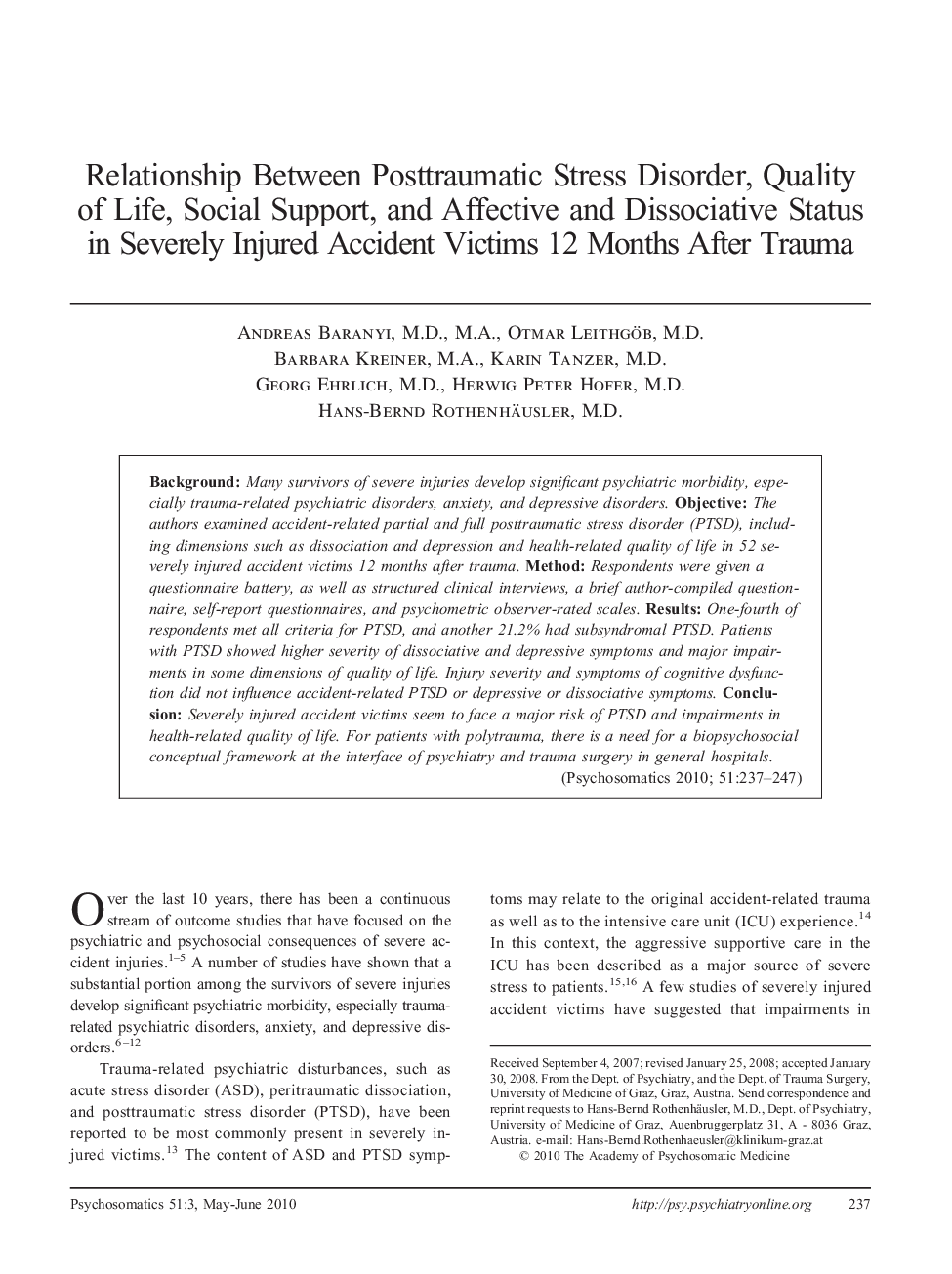| Article ID | Journal | Published Year | Pages | File Type |
|---|---|---|---|---|
| 339349 | Psychosomatics | 2010 | 11 Pages |
BackgroundMany survivors of severe injuries develop significant psychiatric morbidity, especially trauma-related psychiatric disorders, anxiety, and depressive disorders.ObjectiveThe authors examined accident-related partial and full posttraumatic stress disorder (PTSD), including dimensions such as dissociation and depression and health-related quality of life in 52 severely injured accident victims 12 months after trauma.MethodRespondents were given a questionnaire battery, as well as structured clinical interviews, a brief author-compiled questionnaire, self-report questionnaires, and psychometric observer-rated scales.ResultsOne-fourth of respondents met all criteria for PTSD, and another 21.2% had subsyndromal PTSD. Patients with PTSD showed higher severity of dissociative and depressive symptoms and major impairments in some dimensions of quality of life. Injury severity and symptoms of cognitive dysfunction did not influence accident-related PTSD or depressive or dissociative symptoms.ConclusionSeverely injured accident victims seem to face a major risk of PTSD and impairments in health-related quality of life. For patients with polytrauma, there is a need for a biopsychosocial conceptual framework at the interface of psychiatry and trauma surgery in general hospitals.
